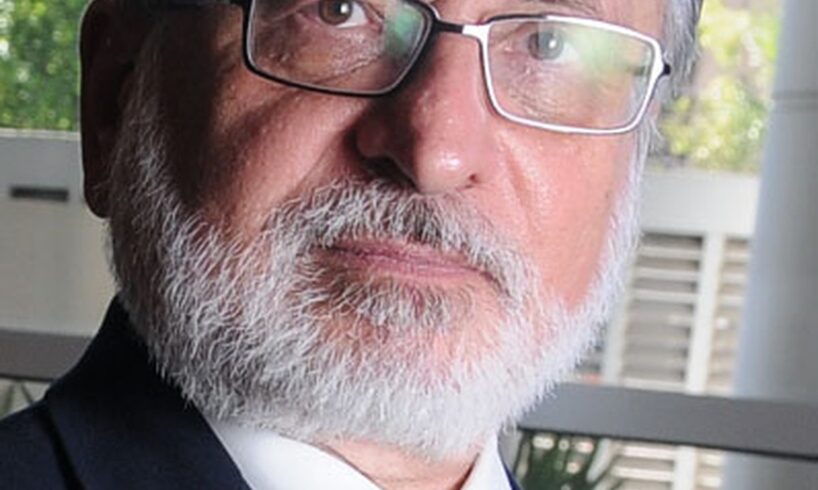
The recent goodwill shown by U.S. President Donald Trump toward President Lula should not distract Brazil from its main objective in negotiations over reducing U.S. tariffs, warns former ambassador Roberto Abdenur. According to the diplomat, Brazil “should not concede anything” during the talks.
A favorable point for Brazil, Mr. Abdenur says, is the waning influence of U.S. Secretary of State Marco Rubio in bilateral affairs. The direct exchange of phone numbers between Messrs. Trump and Lula effectively sidelined Mr. Rubio from mediating the negotiations.
“This time, the real weight on the American side lies with the trade department,” Mr. Abdenur explains. To handle potentially tougher negotiations under Mr. Trump, Brazil’s team should adopt a highly technical approach.
“The combination of personal respect, political experience, and direct communication channels with the U.S. president gives Brazil a position of advantage,” says Mr. Abdenur, even if the Americans take a hard line.
At the same time, he stresses that Brazil must not retreat “even a millimeter” in its relations with China under U.S. pressure. It would be a mistake, he adds, for the Brazilian team to use its commercial ties with China as leverage or retaliation against Washington.
Mr. Abdenur, who served as Brazil’s ambassador to Washington between 2004 and 2007, also highlights Brazil’s strong technical reputation and “rigorous economic argumentation” as assets in the talks. In his view, Mr. Lula’s rhetoric of national sovereignty has reinforced that reputation, creating optimism for the future of bilateral relations.
Regarding the almost cordial dynamic between the two presidents, Mr. Abdenur notes positive signals from their first and only meeting, particularly the hour-long conversation and the respectful tone Mr. Trump maintained. By congratulating Mr. Lula, showing friendliness, and exchanging direct contacts, Mr. Trump demonstrated more respect than he did toward Argentina’s President Javier Milei.
“Lula has become a figure of respect — both for his political trajectory and for not bowing to the U.S. president at any point during the tariff dispute,” Mr. Abdenur told Valor. He also points out that Mr. Trump appears to have shifted the personal affinity he once had with Jair Bolsonaro toward Mr. Lula, a sign that could influence the tone of upcoming meetings.
Lia Valls, a research associate at the FGV Ibre (Brazilian Institute of Economics at the Getulio Vargas Foundation), agrees that the negotiations are likely to benefit Brazil, though they may be longer and more complex. “Trump will have to be patient,” she says. Ms. Valls also agrees that Mr. Rubio’s reduced influence makes the talks more technical and commercial in nature.
She acknowledges that Brazil has some room for maneuver but doubts the government will “give up too much,” given its history in international relations. If any concessions occur, they might involve specific products, such as ethanol. Still, any flexibility from Brasília could displease segments of the private sector.
The textile industry, for instance, lost about R$65 million in September due to halted exports to the U.S. and remains cautious. According to Fernando Pimentel, executive director of the Brazilian Textile and Apparel Industry Association (Abit), companies aren’t expecting an immediate suspension of tariffs but are hopeful for renewed access to the American market. Many companies, such as beachwear manufacturers, had the bulk of their export contracts with U.S. buyers.
Another advantage for Brazil, Ms. Valls adds, is the lobbying by U.S. companies that support reducing tariffs on Brazilian goods. American businesses see investment opportunities in Brazil and are pressuring lawmakers accordingly. Mr. Pimentel confirms that private-sector dialogue continues alongside official negotiations.
Despite the optimism, both experts caution that bilateral trade agreements take time, especially amid current geopolitical uncertainty. Ms. Valls estimates that negotiations could last at least 90 days from the moment a formal schedule is set.
As for possible results, she sees a strong likelihood of reducing or suspending the current 40% surtax. In the best-case scenario, the tariffs could return to the pre-dispute level of 10%, with exemptions for products the U.S. does not produce, such as coffee.
Ms. Valls notes that the Trump administration has developed a custom approach to trade deals, fostering a significant rise in AI-related product trade, particularly with nations in the Global South. Contrary to market expectations, there has been no severe recession, and Mr. Trump continues to encourage the pursuit of new markets and agreements, she says.





